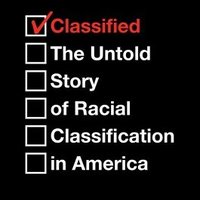
Aaron Sibarium
@aaronsibarium
Reporter @FreeBeacon. Co-host of "Institutionalized" with @CharlesFLehman. DMs open. sibarium @ freebeacon dot com. “A kind of genius”—Jason Stanley
ID: 848348952084828160
https://freebeacon.com/author/aaron-sibarium/ 02-04-2017 01:38:46
26,26K Tweet
83,83K Followers
4,4K Following

I compiled the titles of ~460 articles considered for advanced screening by the HLR, based on reports by the Washington Free Beacon . Lots of juicy details in the memo, but the worst: AI is all but absent! In 2025!










In The Canceling of the American Mind Rikki Schlott & I talk about the “perfect rhetorical fortress,” layers upon layers of cheap rhetorical tricks and dodges that allow people to “win arguments” without actually engaging in good faith with their opponents’ substantive arguments.





